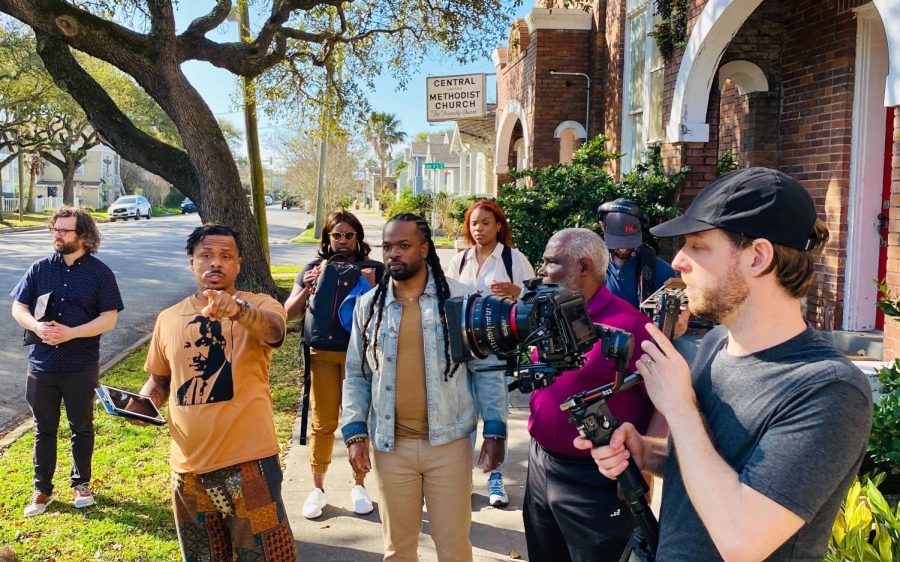RTF professor Ya’Ke Smith reflects on Juneteenth, anniversary of his documentary about the holiday
June 19, 2023
“Juneteenth: Faith & Freedom,” directed by Radio-Television-Film professor Ya’Ke Smith, was released last June to help viewers understand the story of Juneteenth.
In June 2021, Smith wrote about Juneteenth in a pamphlet for the devotion article publication Voices, a subsidiary of Our Daily Bread, shortly after President Joe Biden signed a law making Juneteenth a federal holiday. After the article was published, Smith said Our Daily Bread approached him wanting to create a Juneteenth documentary. A collaboration began between Smith and Rasool Berry, the producer and face of the documentary.
Smith said he was immediately struck by the idea of creating a documentary centered around Juneteenth, as it had always been an integral part of his life.
“My family’s from Texas and we’ve always celebrated Juneteenth,” Smith said. “We’d have family reunions centered around Juneteenth, there were Juneteenth parades. There was always a sense that Juneteenth was a very, very important day for us as Black people in Texas. So when he asked me to do it, I was like, ‘Of course’ because I understand it very intimately. And I want to be a part of the legacy and history of Juneteenth.”
With Juneteenth now a federal holiday, Smith said there is an assumption everyone knows the holiday’s purpose, but there is actually a considerable education gap on the subject.
Layton Fields, a communication and leadership sophomore, said she took it upon herself to learn about the holiday and that the documentary was eye-opening.
“The main thing I learned was when they were talking about how there were slave Bibles, and it blacked out like all of the parts (that) would assume that there were people of other cultures in the Bible, and basically made it so the white people were the saviors,” Fields said.
Since Juneteenth celebrates the emancipation of all enslaved people after the last few in Texas learned of their freedom, Sharon Obinna, a speech, language, and hearing sciences sophomore, said the educational gap may be region-based.
“I feel like a lot of Black Americans … know about Juneteenth, and then maybe when they leave Texas, they realized that it’s not really a big deal in other areas,” Obinna said.
Smith’s documentary was shot in about six days, and production took about six months. Smith said the team would sometimes commute from Houston to Dallas in one day for back-to-back interviews, which was very challenging. But the post-production process was even more grueling since Smith had to repeatedly hear the traumatic narratives.
Despite the arduous process, Smith said his goals for the film were met, and he continues to talk about Juneteenth and participating in celebrations.
“I think that there’s always been a spirit of celebration around the Juneteenth holiday. And there’s always been an understanding that we must continue to talk about this history,” Smith said. “We must continue to tell our children about this history. And we must continue to understand that this history again, it’s not just important, but it is a roadmap for the ways in which we can continue fighting now.”












